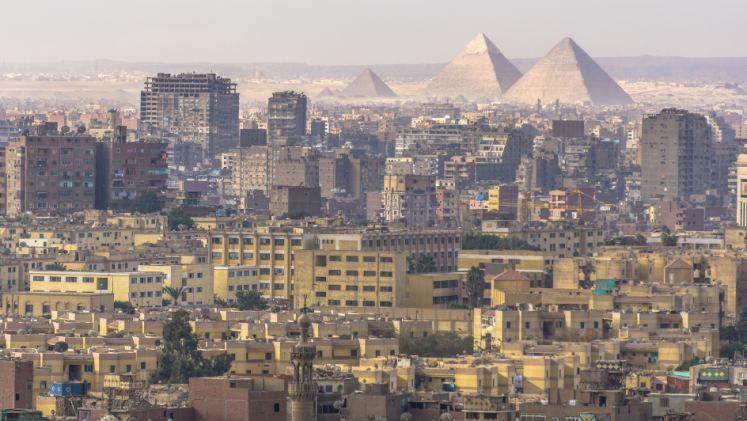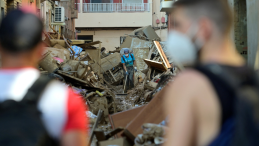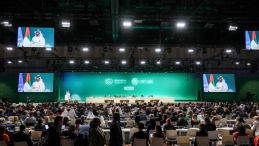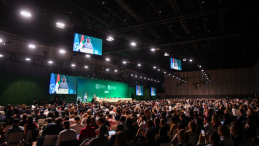2024 is the year of major international conferences. There were only 48 hours between the end of the World Urban Forum (WUF) in Cairo and the start of COP29 in Baku. The conference in Cairo was attended by over 37,000 participants from 182 countries. It revealed the high level of ambition among urban stakeholders from politics, civil society, international organizations and research, and presented numerous inspiring initiatives.
Outcomes of WUF12
The event concluded on the “Cairo Call for Action”, which highlights that cities are at the forefront of climate action. Acknowledging ongoing and irreversible urbanization, it recalls that access to adequate housing is a human right. It identifies the need to act on the housing crisis, and achieving urban equity and justice as pre-requisites for climate action that benefits all residents. Furthermore, it identifies a general need for the consideration of local knowledge and cultures and broad coalitions across actors and scales, albeit not explicitly related to climate.
However, the question is how to make conclusions actionable and how to reach those actors who were not represented or those who were but think climate is less of a concern compared to other urban challenges.
Linking WUF12 to COP29
Here, the final document is missing the opportunity of passing on clear fields of action to the next major conference, COP29 in Baku. While the Call for Action refers to the New Urban Agenda and the SDGs, as well as to the recently agreed Pact for the Future, there is no reference to the Paris Agreement or related processes. Urban topics are on the agenda in in Baku, and the COP29 presidency was present in Cairo to make sure outputs from one are taken to the other.
COP29 will have a thematic day on “Urbanisation / Transport / Tourism” on 20 November. Furthermore, the COP29 Presidency’s initiative on “Multisectoral Actions Pathways (MAP) to Resilient and Healthy Cities” will call on Parties and stakeholders to enhance multisectoral cooperation, create coherence in all urban climate efforts and catalyse urban climate finance.
Nevertheless, the key action items for the climate conference were not linked very much with the topics at WUF. This can have a negative impact on access to critical financial resources and consideration of cities and their particular challenges in National Adaptation Plans (NAPs) and Nationally Determined Contributions (NDCs). Despite the obvious overlaps, there are still too many actors who focus only on one of these two processes. Consequently, this is where multisectoral cooperation and coherence are essential. But that may be asking a lot of urban actors whose work is on the ground. Therefore, clear links between the agendas and appropriate communication are needed.
Three concrete and urgent fields of action
Operationalizing urban loss and damage:
What is striking is that the final document mentions climate adaptation and mitigation, but does not refer to ongoing developments in the area of loss and damage. There is a risk that the opportunity to actively shape the COP29 discourse and to consider cities and particularly the most marginalized inhabitants in ongoing discussions about the operationalization of the fund and its payment mechanisms is missed, which would be difficult to make up for.
Include urban content in NDCs 3.0:
In 2025, countries will have to submit revised NDCs. While around two third of current NDCs already include urban content, less than half of them mention urban climate hazards such as extreme heat, despite their severe and growing impacts. WUF saw the presentation of numerous case studies and existing measures and strategies for making cities more sustainable and climate-friendly. This data can and should be used to inform the development of the NDCs. In doing so, urban actors should be consulted and involved in drafting the documents.
Accelerate Mitigation:
The 2024 Focus of the Sharm el-Sheikh mitigation ambition and implementation work programme is on “Cities: buildings and urban systems", particularly on spatial planning, electrification and low-carbon green and blue infrastructure. Each of these topics was discussed at WUF, and related experts – particularly practitioners – could contribute greatly by sharing good practices and thereby avoiding repeating mistakes made in urban planning in the past. This would be a way to broaden the Programme’s technology-heavy focus to social and equity concerns that are crucial for urban sustainability.
What comes next?
Unfortunately, it also became clear in 2024 that the fight against climate change is becoming more difficult, not easier, despite overwhelming evidence that we urgently need to act. This also applies to cities that are subject to national legislation and to national adaptation and mitigation agendas. Urban actors, mayors and city networks have been crucial in keeping up ambition and action in the past years and continue to do so. They might become ever more important in the years to come.
The WUF12 theme “It all starts at home” can be a guiding principle also for COP. Climate agendas are defined on a global level, but need to be implemented nationally and locally. Action at the urban level is an indispensable component in minimizing the impacts of climate change and containing its effects.
To do this, however, urban actors must be empowered and enabled by the necessary policies, access to finances and knowledge of the respective instruments.





